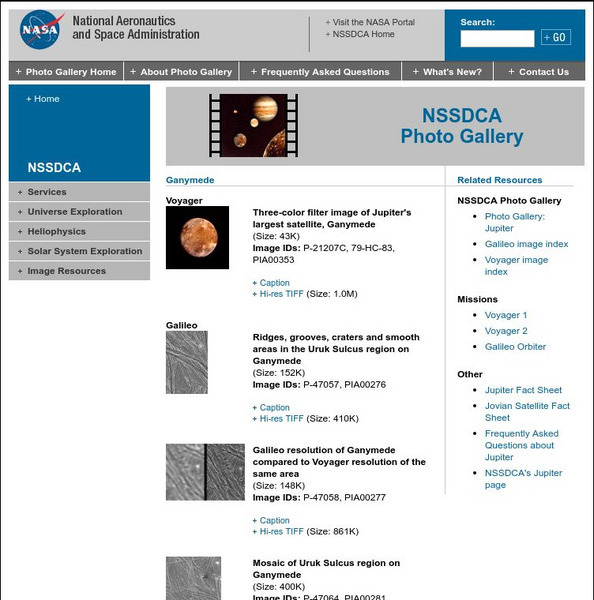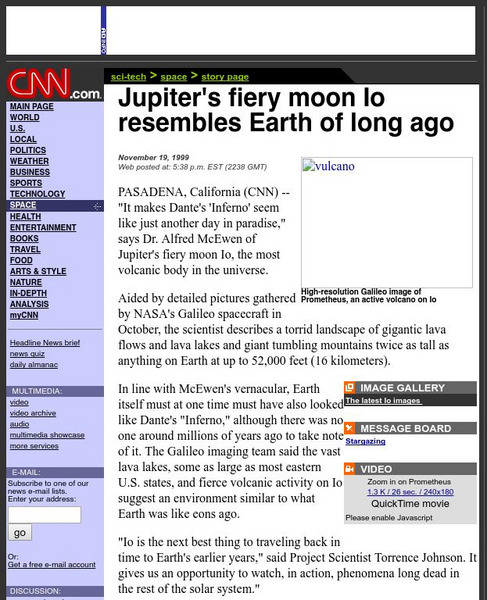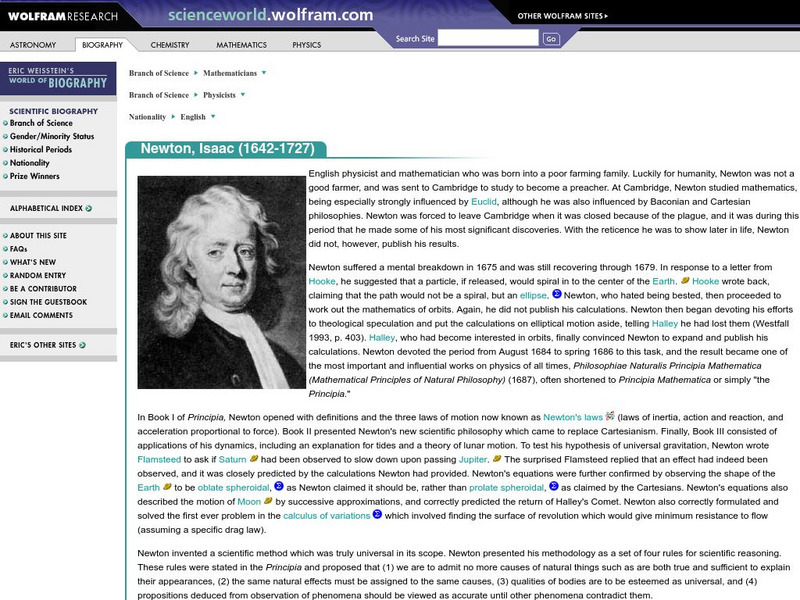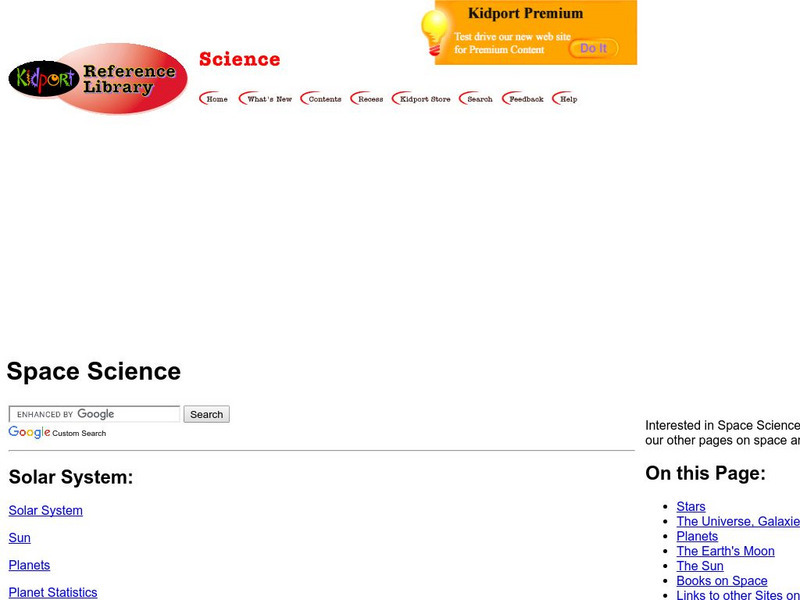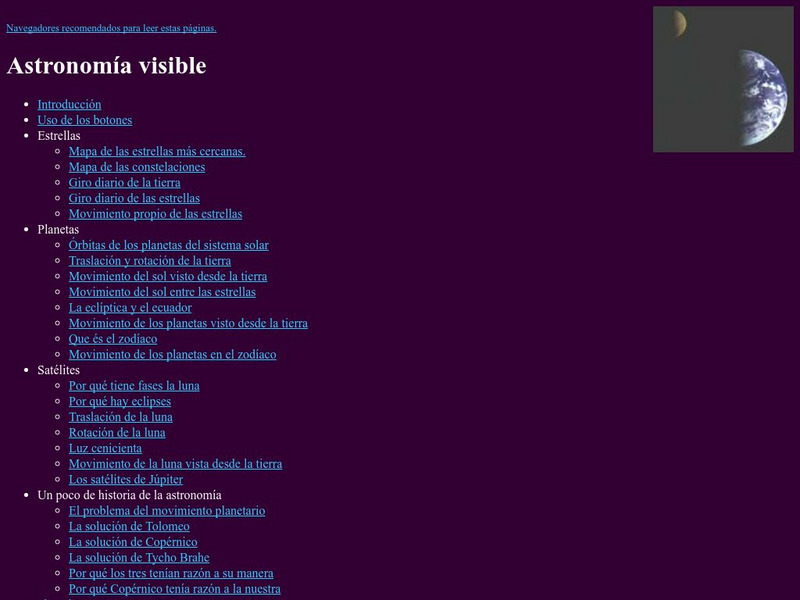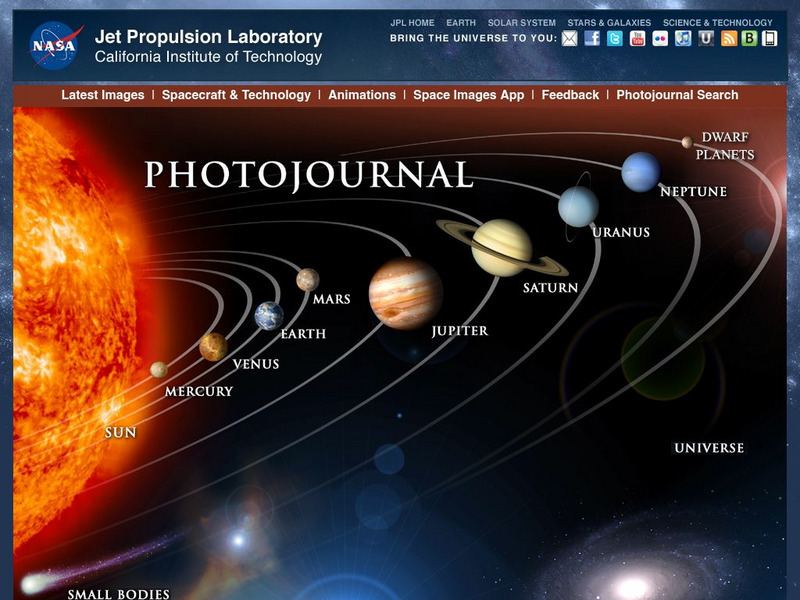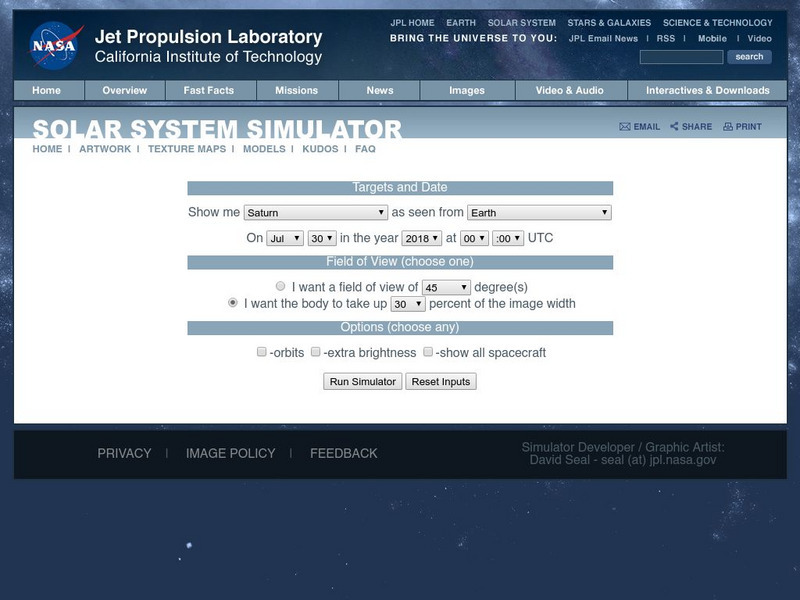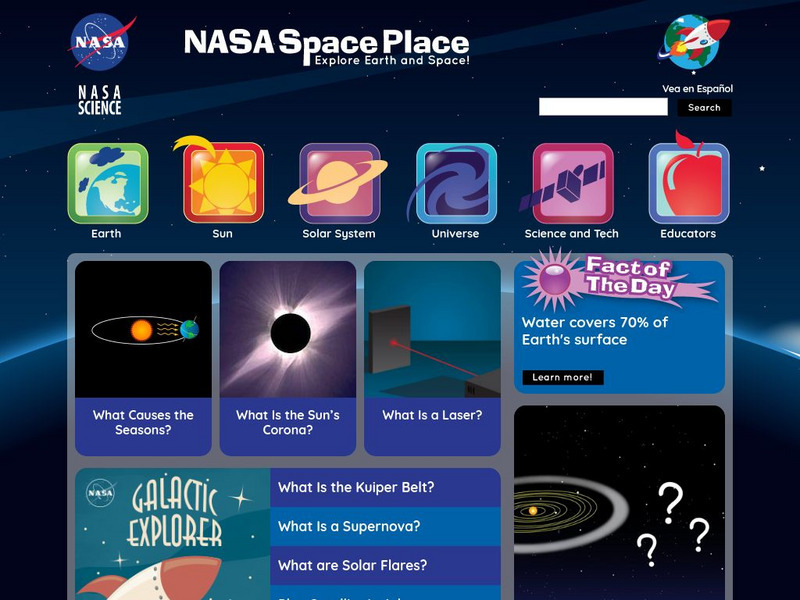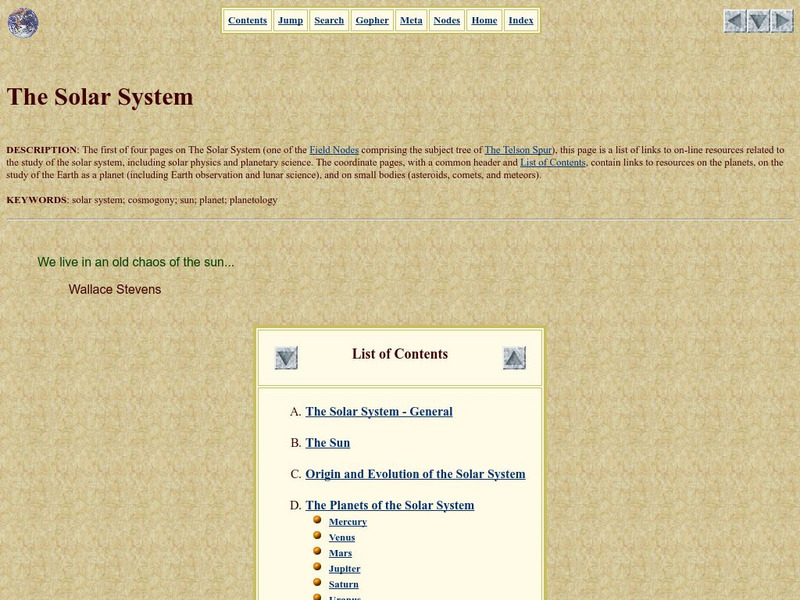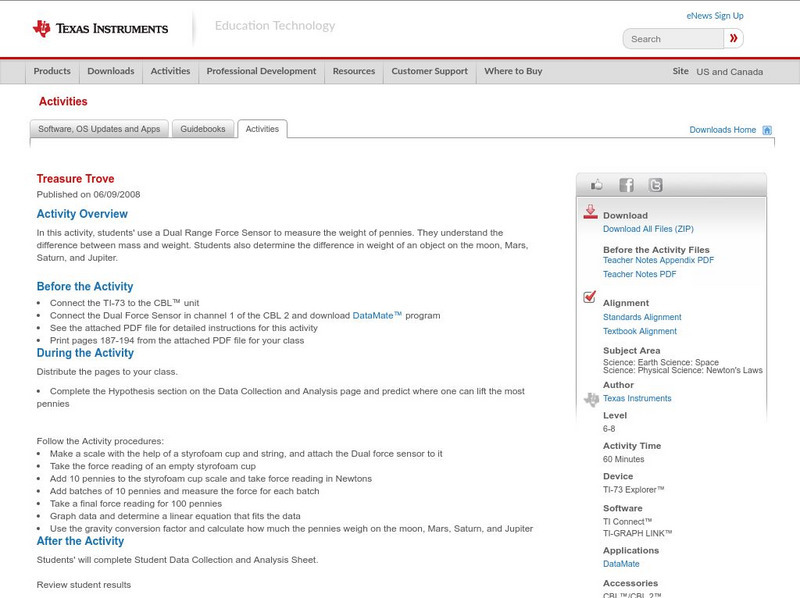NASA
Nasa: The Galileo Mission
This site from NASA has information on the Galileo space mission, which launched in October 1989. In spite of technical problems, Galileo transmitted enormous amounts of new data, especially about Jupiter and its satellites and rings,...
PBS
Pbs Learning Media: Ingredients for Life: Water
This video segment adapted from NOVA goes on a whimsical journey in search of life forms thriving in extreme conditions on Earth and in outer space. Animations show ice on Jupiter's moon, Europa, and signs that water once existed on...
PBS
Pbs Learning Media: Our Solar System Lithograph Set
View these amazing high-quality images of our solar system from NASA with this lithograph set. Each lithograph contains images, facts, dates, and general information on a particular subject. Background information and teaching tips are...
Enchanted Learning
Enchanted Learning: The Planets
This survey of the planets includes all the basics, size, mass, atmosphere, length of day, and the like. It features interactive activities and learning exercises and compares all of the planets in colorful tables.
NASA
Nasa: Great Images in Nasa
Fascinating collection of images from NASA, chosen for their historical or aesthetic significance. Images are searchable by subject, by NASA center, and by keyword, and each is available in three sizes. With links to more information...
NASA
Nasa Space Science Data Archive: Photo Gallery: Ganymede
NASA offers acollection of the best images of Ganymede taken by Voyager and Galileo spacecraft. Includes links to all Voyager and Galileo images and information about the missions. Full captions for each image provides lots of...
CNN
Cnn: Jupiter's Fiery Moon Io Resembles Earth of Long Ago
CNN article from November 1999, reporting on the volcanoes of Io. Some general information about the Galileo spacecraft and specific information about some of the volcanoes of Io.
Other
Judtith Lang Zaimont Composer
Website list current performances and latest news releases regarding American composer Judith Lang Zaimont. Includes composition and discography information, along with personal and professional biography.
Wolfram Research
Wolfram Science World: Life of Sir Isaac Newton
This site from ScienceWorld provides an interesting biographical sketch of the English physicist and mathematician, Isaac Newton. The biography is a good size in length and very informative, with links provided throughout for additional...
Nine Planets
The Eight Planets: Just for Kids
Here is a clear, simple picture of the solar system. Click on the names of the planets to learn more about each. Clicking on underlined terms takes you to more and more detailed scientific information.
American Museum of Natural History
American Museum of Natural History: Ology: Astronomy: In Pictures: Beyond Planet Earth
What would it be like to travel across the solar system and explore space? Take a look at some of the places that humans might go to someday, and the questions that scientists are asking.
Kidport
Kidport: Space Science
This complete resource will help students to improve their understand of space exploration. Includes images of the universe, galaxies, stars and planets.
Ministerio de Educación (Spain)
Ministerio De Educacion: Astronomia Visible
This site has maps of the nearest stars and constellations. Earth and star daily rotation, proper motion of the stars and many other topics about the solar system are also shown.Read phonetically
Read Works
Read Works: What's Up in Space?
[Free Registration/Login Required] An informational text about outer space. A question sheet is available to help students build skills in reading comprehension.
NASA
Nasa Star Child: Star Child
StarChild from NASA defines and describes the Solar System in a simple and easy-to-understand manner. The website is broken down into two versions for the student, grade school and junior high.
NASA
Nasa: Planetary Photojournal
This NASA site provides access to publicly released images from various Solar System exploration programs.
Other
Uppsala Astronomical Observatory: Planetary Imaging
Images of Mercury, Venus, the Moon, Mars, and Jupiter by the Swedish Vacuum Solar Telescope.
NASA
Nasa: Surface Maps of the Solar System
Solar system surface map database. Includes maps of all solid planets and many moons. Maps of gas planets are either based on images taken by Voyager, or are fictitious maps including general storm systems.
NASA
Nasa: The Space Place
This site from NASA's Space Place is geared towards early elementary learners. It offers detailed instructions for crafts and activities related to space, games and a teacher resource area. Students can also ask an expert at this site.
Other
The Telson Spur: The Solar System
This is a list of links to online resources related to the study of the planets. It has a literary theme associated with the Lewis Carrol poem "The Hunting of the Snark" with many quotes from literature and science. Navigation tools...
Curated OER
Exploratorium: Your Weight on Other Worlds
Want to lose weight in a hurry? Just step on a scale on almost any other planet! This page allows you to enter your weight on Earth and it will calculate your weight on all of the other planets, some moons and even some stars. Requires a...
Trinity College Dublin
The History of Mathematics: Roemer
A short biographical sketch of the life and work of Ole Roemer (1652-1719 CE). Identifies his scientific discoveries and contributions in astronomy.
Texas Instruments
Texas Instruments: Treasure Trove
In this activity, students use a Dual Range Force Sensor to measure the weight of pennies. They understand the difference between mass and weight. Students also determine the difference in weight of an object on the moon, Mars, Saturn,...
Wonderville Media
Wonderville: Planets
There are eight planets in orbit around our Sun. These planets form our solar system. The eight planets are Mercury, Venus, Earth, Mars, Jupiter, Saturn, Uranus, and Neptune. There are also rocks, moons, comets, and other objects going...





